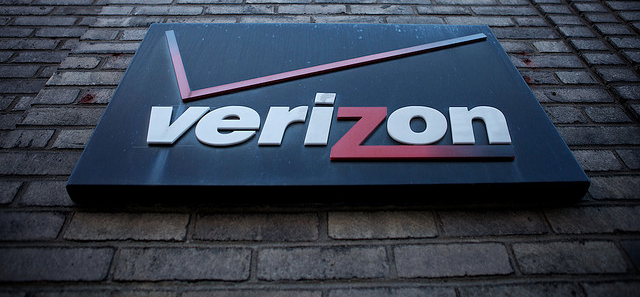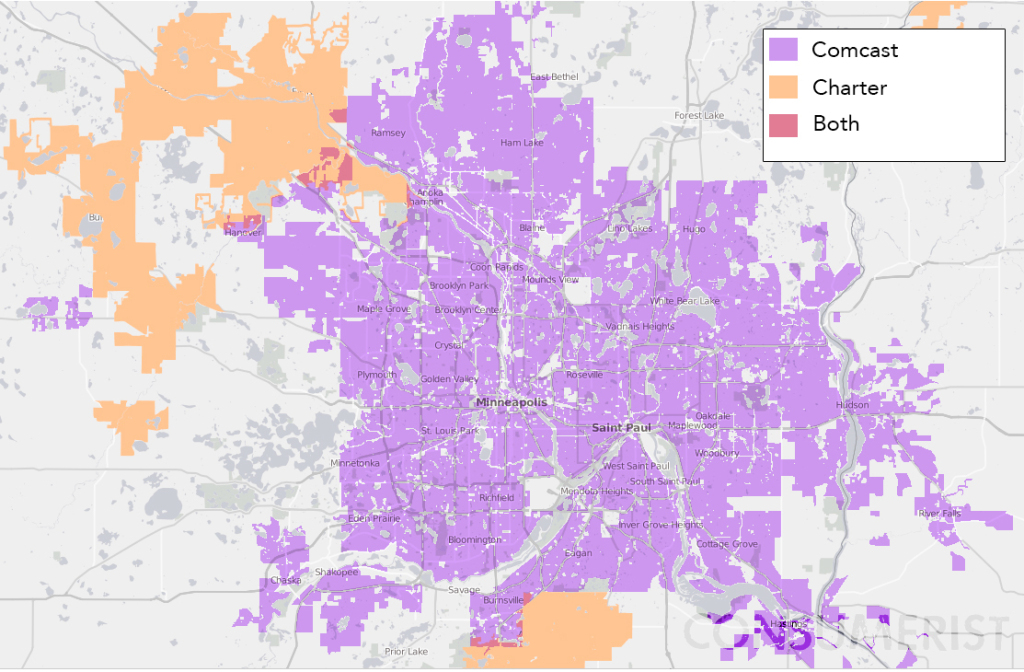Verizon: Everything Is Great, Let’s Not Mess It Up By Fixing Net Neutrality
Ah, Verizon, those well-known lovers of net neutrality. They love it so much that they sued the FCC to get net neutrality tossed out — a move that succeeded earlier this year. And now, Verizon’s showing their deep and abiding fondness for internet openness by telling the FCC just how much we don’t need to protect it at all.
The FCC has been working, in its own slow and halting way, to come up with new net neutrality rules since an appeals court vacated the old ones in January. In a filing with the FCC (PDF), Verizon has joined its corporate brethren Comcast and AT&T to insist that everything is peachy keen as-is and that new rules will be either unnecessary or actively harmful.
Verizon’s statement starts out strong, brazenly stating, “No problems threatening competition or consumers’ enjoyment of the Open Internet have emerged.” And sure, aside from the specter of giant mergers that make an anticompetitive situation even worse, or content companies having to pay off the big ISPs to provide service to consumers at reasonable speeds, everything’s fine.
But that’s just the opening salvo. Once Verizon warms up, they really get going. Because they love the Open Internet just that much, and want to prevent the FCC from ruining it for us all:
Under these circumstances, rather than once again attempting to adopt prescriptive rules aimed at preventing theoretical problems, the Commission should instead rely primarily on consumer choice, competition, transparency, and effective multi-stakeholder processes to guide the development of the Internet. Prescriptive rules are particularly ill-suited for a dynamic marketplace like the Internet and would likely be outdated and counter-productive as soon as they are adopted.
Ah. So instead of creating rules that prevent harm to consumers before companies can cause it, the FCC should wait until after people can’t use the broadband internet access they pay for to do the things they want to do. Well, that does have a kind of logic to it. The kind of logic that results in harm to people, but logic of a sort at least. So if they’re not building a framework within which ISPs need to operate, what should the FCC do in the meantime?
In the meantime, the Commission should focus on what it can do to further encourage broadband deployment and development of new services, such as facilitating the transition to IP-based networks and bringing more spectrum to market. Such actions will do far more to benefit consumers than another prolonged struggle over net neutrality rules.
Verizon seems to think here that encouraging the development of new technologies is somehow mutually exclusive with making sure the existing ones both work well and remain accessible. Only… it’s not. Verizon spends several paragraphs lauding the expansion of their 4G LTE projects, which is fine if that’s where they want to pour their money. But continuing to devote resources to those divisions of their company has more or less nothing to do with favoring certain content providers over others in future agreements.
The climax of Verizon’s argument, though, is also the part that takes the most chutzpah to argue:
The Internet ecosystem is thriving today. Consumers have multiple choices for obtaining broadband Internet access. Traditional telephone companies and cable companies have engaged in fierce competition to retain existing subscribers and attract new ones. Verizon has invested billions of dallars in its all-fiber FiOS network, and other companies have also deployed fiber-based broadband networks. Cable companies likewise have upgraded their networks to DOCSIS 3.0 technology. As a result, as of December 2012, 97 percent of households in the United States were located in census tracts with two or more residential fixed-line broadband connections
That “97%” statistic does a lot of heavy lifting there. Although technically true, it doesn’t represent the whole picture.
As Consumerist covered earlier this month, what competition exists is often a choice between slow, copper-wire DSL and one single terrestrial cable provider. Want a real high-speed connection? For a huge percentage of addresses in the country, there’s only one company you can actually call.
And where does Verizon fit into that? Although their fiber customers are slightly less miserable than most cable providers’ subscribers, they’re still not exactly happy. And good luck becoming a FiOS customer if you aren’t already; the company has all but stopped expanding fiber service. Even while they’re trying to pull back on servicing copper landlines and pushing consumers to fiber instead.
In their own, similar filing, AT&T claimed that net neutrality would raise costs all around. Verizon isn’t even making claims that concrete. The one drum that they beat, through the entire filing, basically sums up as “net neutrality will hurt fiber and wireless innovation because reasons.”
If those reasons are that Verizon maybe gets to soak everyone for just a smidge less money, well, that’s probably a not-yet-proven harm that most folks are willing to live with.
[via DSL Reports]
Want more consumer news? Visit our parent organization, Consumer Reports, for the latest on scams, recalls, and other consumer issues.



